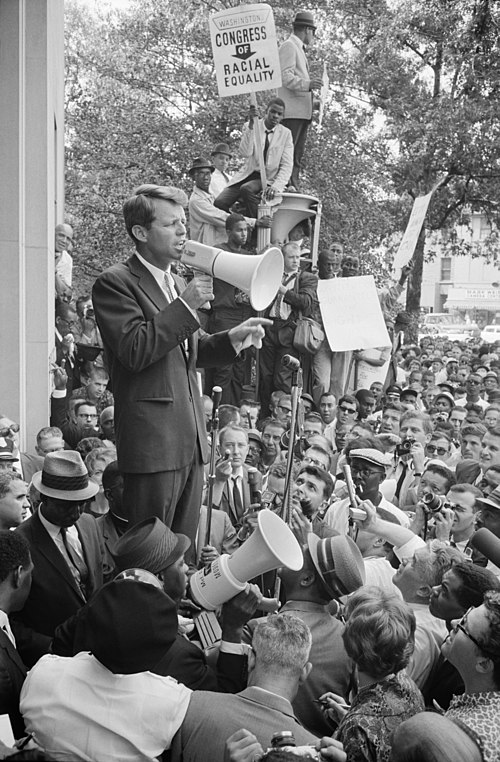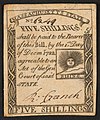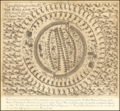Portal:New England
The New England Portal New England is a region comprising six states in the Northeastern United States: Connecticut, Maine, Massachusetts, New Hampshire, Rhode Island, and Vermont. It is bordered by the state of New York to the west and by the Canadian provinces of New Brunswick to the northeast and Quebec to the north. The Gulf of Maine and Atlantic Ocean are to the east and southeast, and Long Island Sound is to the southwest. Boston is New England's largest city and the capital of Massachusetts. Greater Boston is the largest metropolitan area, with nearly a third of New England's population; this area includes Worcester, Massachusetts, the second-largest city in New England, Manchester, New Hampshire, the largest city in New Hampshire, and Providence, Rhode Island, the capital of and largest city in Rhode Island. In 1620, the Pilgrims established Plymouth Colony, the second successful settlement in British America after the Jamestown Settlement in Virginia, founded in 1607. Ten years later, Puritans established Massachusetts Bay Colony north of Plymouth Colony. Over the next 126 years, people in the region fought in four French and Indian Wars until the English colonists and their Iroquois allies defeated the French and their Algonquian allies. (Full article...) Selected article
Dartmouth College is a private, coeducational university located in Hanover, New Hampshire. It is a member of the Ivy League and one of the nine Colonial Colleges founded before the American Revolution. In addition to its undergraduate liberal arts program, Dartmouth has medical, engineering, and business schools, as well as 19 graduate programs in the arts and sciences. With a total enrollment of 5,849, Dartmouth is the smallest school in the Ivy League. Established in 1769 by Congregational minister Eleazar Wheelock with funds largely raised by the efforts of Native American preacher Samson Occom, the College's initial mission was to acculturate and Christianize the Native Americans in the area. After a long period of financial and political struggles, Dartmouth emerged from relative obscurity in the early twentieth century. In 2004, Booz Allen Hamilton selected Dartmouth College as one of the "World's Ten Most Enduring Institutions", recognizing its ability to overcome crises that threatened its survival (most notably in Trustees of Dartmouth College v. Woodward). Dartmouth alumni, from Daniel Webster to the many donors in the nineteenth and twentieth centuries, are famously involved in their college. (Full article...)
Selected biography
Art Ross was a Canadian ice hockey defenceman and executive from 1905 until 1954. Regarded as one of the best defenders of his era by his peers, he was one of the first to skate with the puck up the ice rather than pass it to a forward. He was on Stanley Cup championship teams twice in a playing career that lasted thirteen seasons. Like other players of the time, Ross played for several different teams and leagues. He retired as a player in 1918 when the home stadium of his team, the Montreal Wanderers, burned down
When the Boston Bruins were formed in 1924, Ross was hired as the first coach and general manager of the team. He would go on to coach the team on four separate occasions until 1945 and stayed as general manager until his retirement in 1954. Ross helped the Bruins finish first place in the league ten times and to win the Stanley Cup three times; Ross personally coached the team to one of those victories. After being hired by the Bruins, Ross, along with his wife and two sons, moved to a suburb of Boston, and became an American citizen in 1938. He died near Boston in 1964. (Full article...) Selected picture Credit: Warren K. Leffler (1963) Massachusetts native and then-Attorney General Robert F. Kennedy speaking to a crowd of African Americans and whites through a megaphone outside the Justice Department
General images -The following are images from various New England-related articles on Wikipedia.
Did you know (auto-generated)
Related portalsMore did you know...
Selected State
Maine
Incorporated 1820 Co-ordinates 45.5°N 69°W Maine is both the northernmost and easternmost portion of New England. It is known for its scenery—its jagged, mostly rocky coastline, its low, rolling mountains, its heavily forested interior and picturesque waterways—as well as for its seafood cuisine, especially lobsters and clams. As Maine entered the 18th century, only a half dozen European settlements survived. Patriot and British forces contended for Maine's territory during the American Revolution and the War of 1812. Maine was part of the Commonwealth of Massachusetts until 1820, when it voted to secede from Massachusetts. On March 15, 1820, it was admitted to the Union as the 23rd state under the Missouri Compromise. Maine is the 39th most extensive and the 41st most populous of the 50 United States. (Full article...) WikiProjectsAssociated WikimediaThe following Wikimedia Foundation sister projects provide more on this subject:
Discover Wikipedia using portals |

















































































